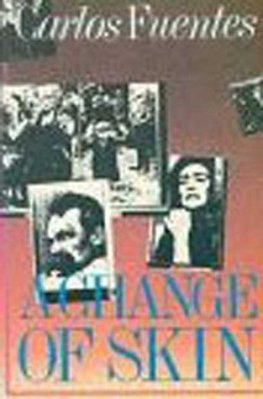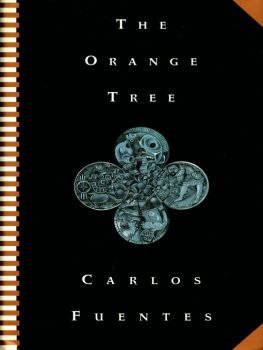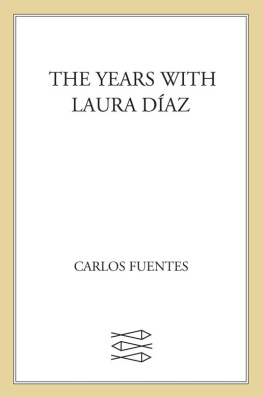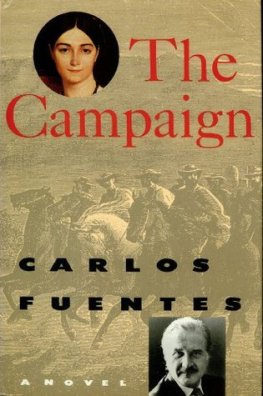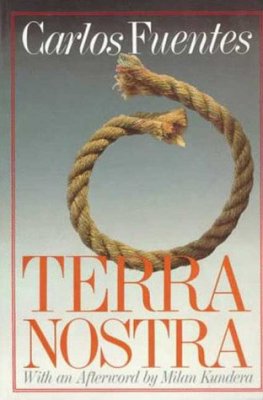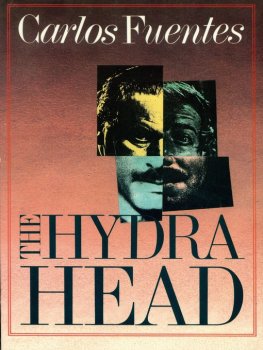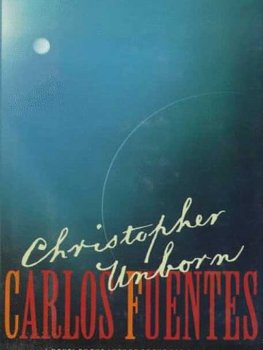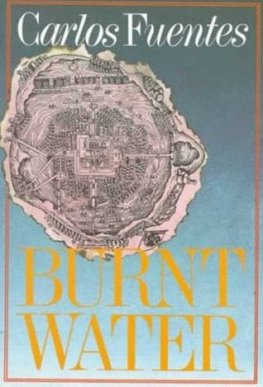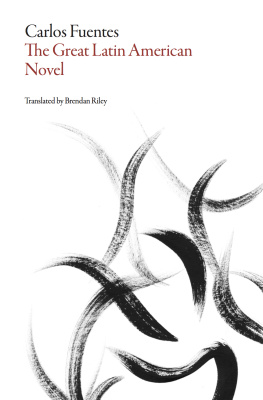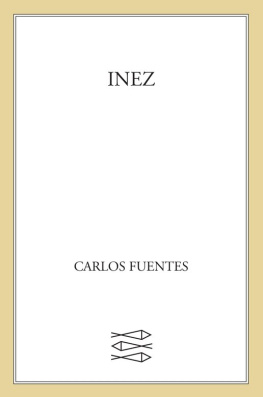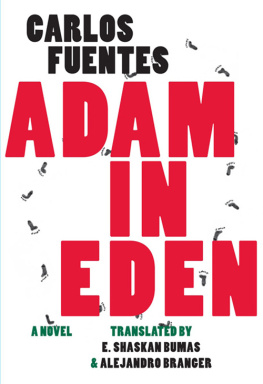Carlos Fuentes - Diana
Here you can read online Carlos Fuentes - Diana full text of the book (entire story) in english for free. Download pdf and epub, get meaning, cover and reviews about this ebook. publisher: Farrar, Straus and Giroux, genre: Romance novel. Description of the work, (preface) as well as reviews are available. Best literature library LitArk.com created for fans of good reading and offers a wide selection of genres:
Romance novel
Science fiction
Adventure
Detective
Science
History
Home and family
Prose
Art
Politics
Computer
Non-fiction
Religion
Business
Children
Humor
Choose a favorite category and find really read worthwhile books. Enjoy immersion in the world of imagination, feel the emotions of the characters or learn something new for yourself, make an fascinating discovery.

- Book:Diana
- Author:
- Publisher:Farrar, Straus and Giroux
- Genre:
- Rating:5 / 5
- Favourites:Add to favourites
- Your mark:
- 100
- 1
- 2
- 3
- 4
- 5
Diana: summary, description and annotation
We offer to read an annotation, description, summary or preface (depends on what the author of the book "Diana" wrote himself). If you haven't found the necessary information about the book — write in the comments, we will try to find it.
On New Years Eve in 1969, a novelist in his forties meets the beautiful movie actress Diana Soren at a party and is fascinated by her oddly elusive charm. But in this novel from Carlos Fuentes, his infatuation turns into doomed pursuit as the fleeting object of his desire spurns him, and he is forced to reconsider the foundations of his life as a writer.
Diana — read online for free the complete book (whole text) full work
Below is the text of the book, divided by pages. System saving the place of the last page read, allows you to conveniently read the book "Diana" online for free, without having to search again every time where you left off. Put a bookmark, and you can go to the page where you finished reading at any time.
Font size:
Interval:
Bookmark:
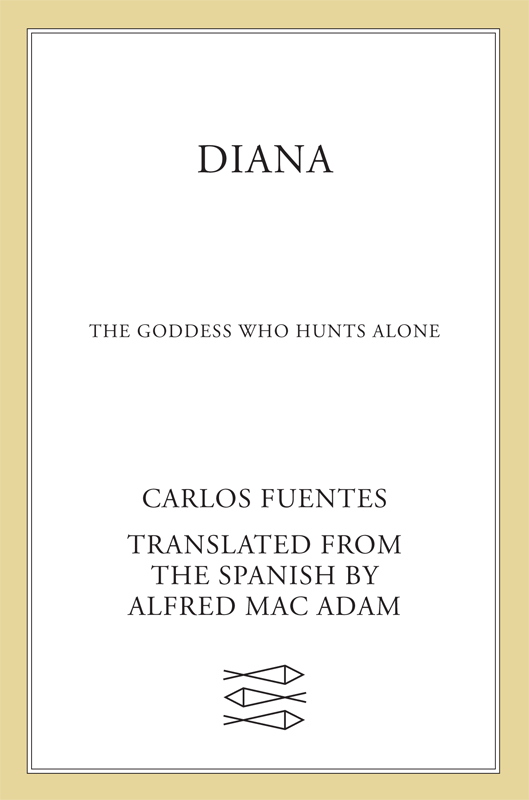

The author and publisher have provided this e-book to you for your personal use only. You may not make this e-book publicly available in any way. Copyright infringement is against the law. If you believe the copy of this e-book you are reading infringes on the authors copyright, please notify the publisher at: us.macmillanusa.com/piracy.
Contents
I
No bondage is worse than the hope of happiness. God promises us a vale of tears on this earth, but at least that suffering comes eventually to an end. Eternal life is eternal bliss. Rebellious, unsatisfied, we argue with God: Dont we deserve even a taste of eternity during our passage through time? God has more tricks than a Las Vegas cardsharp. He promises us joy in the hereafter and sorrow on earth. We convince ourselves that knowing life and living it well in His vale of tears is the supreme defiance of God. Of course, if we are triumphant in our rebellion, God gets even: He denies us immortality at His side and condemns us to eternal pain.
Contrary to all logic, we ascribe logic to the Divinity. We tell ourselves, God could not be the creator of misery and suffering, human cruelty and human barbarity. We say, in any case, it was not a good God who created that but a bad God, the God of appearances, the masked God whom we can overcome only by wielding the weapons of evil that He himself forged. Sex, crime, and, above all, the imagination of evil: arent these also the gifts of a malevolent God? So we persuade ourselves that only if we murder the usurper God will we, clean in body, mentally free, see the face of the first God, the good God.
But the great cardsharp has yet another ace up his sleeve. When weve worn out body and soul trying to reach Him, God reveals that He is only what He is not. All we can know about God is what He is not. To know what God is is something neither saints, nor mystics, nor Church Fathers know; not even God Himself knows. Hed collapse, fulminated by His own intelligence, if He knew.
Bedazzled, Saint John of the Cross is the mortal who has come closest to Gods intelligence, just so he can communicate this news to us: God is Nothing, the supreme Nothing, and to reach Him, we must travel toward the Nothing, which cannot be touched or seen or understood in human terms. And to humiliate hope, Saint John leaves us only this terrible passage: All the being the creatures possess, compared with the infinite being of God, is nothing All the beauty of the creatures, compared with Gods infinite beauty, is the greatest ugliness. Perhaps Pascal, French, a saint, and a cynic, is the only thinker whose wager saves both our conscience and our concupiscence: if you wager that God exists and He doesnt, you lose nothing, but if God does exist, you win everything.
Standing between Saint John and Pascal, I give God a nominal, that is substantive, value: God is the shorthand term for what brings origins and destiny together in a single embrace. The reconciliation of these two terms has been humanitys immemorial task. To choose origins alone is at first a lyrical, then very quickly a totalitarian nostalgia. To wed oneself exclusively to destiny can be a form of fatalism or fortune-telling. Origins and destiny should be inseparable: memory and desire, the living passage in the present, the future, here and now Thats where Id like to locate Diana Soren, a woman perversely touched by the Divine.
Standing between Pascal and Saint John of the Cross, I would like to create a mythic, verbal world for her that would approach the mendicant question that stretches out its hands between earth and heaven: Can we love on earth and someday deserve heaven? Instead of being penitents, flagellants, hermits, or creatures starved for life, can we fully participate in it? Can we obtain and deserve earthly fruits without sacrificing eternal life? Without begging forgiveness for having loved not wisely but too well?
Christian mythology, which opposes charity to the implacable judgment of the Old Testament, does not attain the beautiful ambiguity of pagan mythology. The protagonists of Christianity are always themselves, never others. They demand an act of faith, and faith, Tertullian said, is absurd: It is true because it is incredible. But what is absurd is not necessarily ambiguous. Mary is a virgin, though she conceives. Christ rises, though He dies. But who is Prometheus, he who steals the sacred fire? Why does he exercise his freedom so as to lose it? Would he have been freer if he hadnt used it and lost it though he didnt win it either? Can freedom be conquered by a value other than freedom itself? On this earth, can we love only if we sacrifice love, if we lose the person we love though our own acts, our own failure to act?
Is something preferable to everything or nothing? Thats what I asked myself when the love affair Im going to tell about here ended. She gave me everything and took everything from me. I asked her to give me something better than everything or nothing. I asked her to give me something. That something can only be the instant in which we were, or thought we were, happy. How many times did I ask myself, Will I always be what I am now? I remember, and I write to recover the moment when she would forever be as she was that night with me. But all unique things, amatory, literary, in memory or desire, are quickly abolished by the great tide that always rolls over us like a dry flame, like a burning flood. All we have to do is leave our own skin for an instant to know that we are surrounded by an all-powerful pulsation that precedes and survives us. For that pulsation, my life or hers, our very existences are unimportant.
I love and I write to obtain an ephemeral victory over the immense and infinitely powerful mystery of what is there but does not show itself I know the triumph is fleeting. On the other hand, it makes invincible my own secret power, which is to do somethingthis very momentunlike anything in the rest of our lives. Imagination and language show me that, for imagination to speak and for language to imagine, the novel must not be read as it was written. This condition becomes extremely dangerous in an autobiographical text. The writer must be lavish in presenting variations on his chosen theme, multiply the readers options, and fool style with style through constant alterations in genre and distance.
This becomes an even greater need when the protagonist is a movie actress, Diana Soren.
Its said that Luchino Visconti provoked a combination of surprise and delight in Burt Lancaster during the filming of a scene from The Leopard when he stuffed with silk stockings a bag supposedly filled with gold. Diana was like that: a surprise for everyone because of the incomparable smoothness of her skin, but most of all a surprise for herself, her skin surprised by her own pleasure, astonished at being desired, smooth, perfumed. Didnt she love herself, didnt she feel she deserved herself? Why did she want to be someone else? Why wasnt she comfortable in her own skin? Why?
Iand I lived with her only for two monthswant to run even now to embrace her again, feel her for the last time and assure her that she could be loved with passion, but for herself, that the passion she sought did not exclude her true self But the chance for that is gone. We leave a lover. We return to a woman we dont know. The eroticism of visual representation consists, precisely, in the illusion that the flesh is permanent. Like everything else in our time, visual eroticism has accelerated. Over the course of centuries, medallions and paintings were created to make up for the absence of the loved one. Photography accelerated the illusion of presence. But only cinematographic images simultaneously give us evocation and immediacy. This is how she was then but also how she is now, forever
Font size:
Interval:
Bookmark:
Similar books «Diana»
Look at similar books to Diana. We have selected literature similar in name and meaning in the hope of providing readers with more options to find new, interesting, not yet read works.
Discussion, reviews of the book Diana and just readers' own opinions. Leave your comments, write what you think about the work, its meaning or the main characters. Specify what exactly you liked and what you didn't like, and why you think so.

